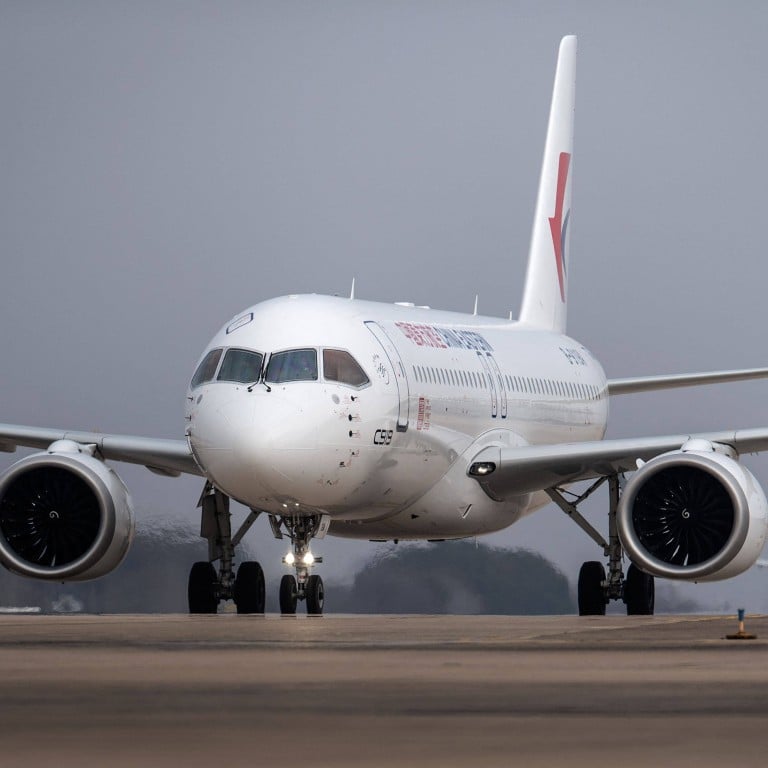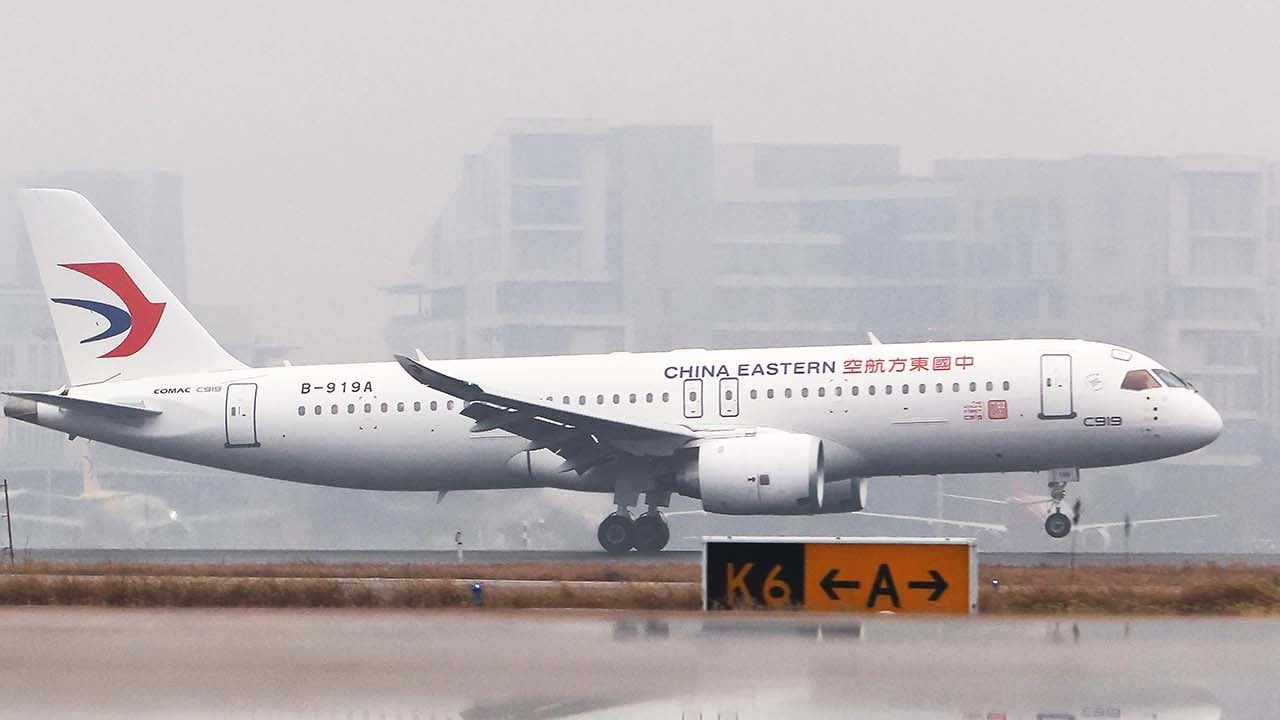
China’s home-grown C919 could break Airbus, Boeing duopoly with ‘brave step into foreign markets’
- China’s C919 home-grown narrow-body passenger jet was delivered to China Eastern Airlines in December after more than 14 years of development
- It was built to compete with Boeing’s 737 and Airbus’ A320, and a Mercator Institute for China Studies report suggests its impact could spread beyond its home market
China’s home-grown narrow-body passenger jet could break the duopoly of Boeing and Airbus in its home market and beyond despite its reliance of foreign parts, according to a new report by a Berlin-based think tank.
The Mercator Institute for China Studies (Merics) argued that the size of China’s aviation market, strong industrial policy and a sector dominated by state-owned companies gives the C919 an edge to advance the country’s “strategic objectives” in aviation.
Production glitches or safety issues aside, Comac’s domestic market share looks set to climb steadily in a huge and increasingly protected home market
“The C919’s market entry is a symbol of China’s technological rise and a source of national pride,” said Merics on Tuesday.
“Production glitches or safety issues aside, Comac’s domestic market share looks set to climb steadily in a huge and increasingly protected home market, with the company at some point reaching the scale to brave the step into foreign markets and global competition.”
China has strong ambition in the commercial aviation market and the central government has laid out plans for the C919 to gain 10 per cent domestic market share by 2025.
Merics said that narrow-body jets are the “bread-and-butter models” for manufacturers, accounting for around 60 per cent of all planes produced.
However, Boeing’s 737 family has been trailing for new orders in China compared to the C919, which has received orders mostly from China’s state-owned airlines and financial institutions.
By late 2022, Comac had received 305 orders for the C919 in China, while Boeing had only received 116 for its 737 series, according to Merics.
Airbus led the pack with 565 orders of its A320 in China, suggesting the duopoly is becoming a triopoly to the detriment of Boeing, Merics said.
What is China’s home-grown C919 aeroplane, and why is it important?
Despite being billed as a home-grown passenger jet, C919’s engine, avionics, control systems, communications and landing gear are made by US and European manufacturers.
Comac has been working to replace some of the foreign parts used for the C919, including looking to find an alternative for the LEAP engine made by CFM International, a joint venture between American firm GE Aviation and France’s Safran Aircraft Engines.
“Even if the C919 is less efficient or technologically advanced than the competition, the political aims of China’s state-owned airlines will likely outweigh such operational deficiencies. In an already highly politicised industry, this will further complicate doing business for Boeing and Airbus,” Merics added.
But because China’s airlines are accustomed to operating Western passenger jets, the move to include C919 in their fleet is going to be gradual, Merics added.
If the C919 performs as promised in China over the next few years, the next area of competition will be in third markets outside of China, Europe and the US
China’s big three state-owned airlines – China Southern, Air China, China Eastern – have placed a combined 294 orders for Airbus’ A320 family and Boeing’s 737, but only 20 each for the C919.
Western politicians and executives should be aware of the ambition of China’s political leadership for Comac, the think tank added.
“If the C919 performs as promised in China over the next few years, the next area of competition will be in third markets outside of China, Europe and the US,” Merics said.
“Only if the C919 can gain this international foothold will it really become a success. The risks are high, but given China’s industrial-policy successes in other areas, Airbus and Boeing better buckle up.”


